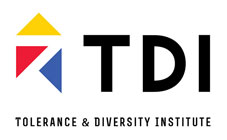
Changes in Forest codex
By Khatia Bzhalava
Thursday, May 21
The Environmental Protection and Natural Resources Committee of Parliament supported changes in the Forest codex on the third hearing. The codex represents the most important part of the forestry sector reform, which is a result of 6-year preparation with the assistance of the EU, world bank, and the government of Georgia.
Aside from the EU association agreement, the legislation responds to the governmental plans and national forestry conception adopted by the Parliament of Georgia in 2013. It settles principles of forest’s sustainable management.
The main purpose of the legislation is to maintain and protect the ecosystems in the forest and to use social and economical benefits reasonably.
According to the Deputy Minister of Environmental Protection and Agriculture of Georgia, Nino Tandilashvili, for the last year Forest Codex has been discussed with almost every NGO and there have been some corrections made. She believes that the condition of the codex in which it is presented today, will play a fundamental and considerable role in defending the environment and the further development of the forests.
The changes consider handing the Patriarchy at most 20 Hectare of the forests that surround the churches.
Tandilashvili dismissed the opinion, as if giving forests to the churches was a part of the electoral campaign and explained that the purpose of the project is to take care of the forests and preserve them for future generations.
“If the churches receive a certain quantity of forests, they will have more duties than the rights. Duties such as keeping, recovering, sustainable managing of the forest, hiring forestry specialists and other range of responsibilities,” said Tandilashvili.
After the support of committees, the changes should be unveiled to the plenary session and only after the deputies approve them will the patriarchy be able to receive the forests, 20 hectare at most per church.
NGOs shared various statements with regard to the Forest Codex, resisting changes in this manner. According to the Tolerance and Diversity Institute (TDI), the initiative grants already-dominant religious organisation with additional property and financial privileges.
As the Human Rights and Monitoring Center (EMC) states, the changes are in resistance with fundamental constitutional principles and creates an unfair experience of managing and sharing strategically natural resources.
Both TDI and EMC believe that this initiative of empowering the patriarchy by granting privileges is a matter of gaining their loyalty prior to the elections.


